Evidence suggests that matcha green tea powder may have a beneficial effect on depression and mood. Matcha is a green tea made from finely ground, shade-grown tea leaves.

Matcha is a traditional Japanese tea that contains L-theanine, an amino acid shown to have calming effects on the brain. L-theanine can increase the production of serotonin and dopamine, which are neurotransmitters associated with feelings of happiness and well-being. This can help to alleviate the symptoms of depression.
In addition, matcha green tea also contains antioxidants called catechins, which can help reduce brain inflammation. Inflammation has been linked to depression, so reducing inflammation may help to improve mood.
There is also some evidence to suggest consuming matcha green tea may help to reduce stress and anxiety, which are often associated with depression.
New Research on How Matcha Green Tea Boosts Mood
Matcha may help combat depression. A new study published in the January 2023 issue of Nutrients researched the antidepressant-like effect of matcha tea powder by activating the dopaminergic system in mice.
These results suggest that Matcha tea powder exerts an antidepressant-like effect by activating the dopaminergic system of the brain, and this is influenced by the mental state of the individual.”
Dr. Yuki Kurauchi of Kumamoto University
Previous studies have explored the potential benefits of matcha green tea consumption for depression:

Shades of Earl Grey - $19.95
from: Firebelly Teas Inc.
- In a study published in the Journal of Functional Foods in 2018, researchers found that a single dose of matcha green tea powder (4 grams) improved cognitive function and reduced self-reported stress in healthy adults. The study also found that matcha increased the activity of alpha waves in the brain, which are associated with relaxation and mental clarity.
- A review of studies published in the journal Nutrients in 2019 concluded that the L-theanine in matcha green tea powder might help to reduce symptoms of anxiety and depression. The review also noted that the catechins in matcha green tea powder have anti-inflammatory and neuroprotective effects, which may also benefit depression.
- A study in Japan found that those who drank over four cups of green tea daily had a 51% lower chance of having depressive symptoms than those who drank one cup or less daily.
While there are many more studies, additional research is needed to fully understand the potential benefits of matcha on depression and mood. These studies suggest that incorporating matcha tea into your diet may positively affect mental health and well-being.
* It is important to note, however, that matcha tea should not replace professional mental health treatment.
What Is In Matcha That May Help Depression?
Matcha powder contains several compounds that are beneficial for mood and depression. One of the critical compounds is L-theanine, an amino acid found almost exclusively in tea plants. L-theanine has been shown to promote relaxation and reduce anxiety by increasing the production of neurotransmitters in the brain, including dopamine and serotonin.
In addition to L-theanine, matcha tea also contains caffeine, which can help to improve alertness and focus. Caffeine has also been shown to have mood-enhancing effects, particularly in individuals with mild to moderate depression.
Matcha tea is also rich in antioxidants, particularly a class of compounds known as catechins. These antioxidants have been shown to have anti-inflammatory effects and may help to protect the brain from oxidative damage, which has been linked to depression.
Overall, the combination of L-theanine, caffeine, and antioxidants in matcha tea may help to improve mood and reduce symptoms of depression by promoting relaxation, reducing anxiety, increasing alertness and focus, and protecting the brain from oxidative damage.
How Does Matcha Boost Mood and Mental Performance?
As mentioned, L-theanine is an amino acid found almost exclusively in tea plants and particularly abundant in matcha tea. Matcha tea may boost mood and mental performance through several mechanisms, including its high concentration of L-theanine and caffeine.
Research has shown that L-theanine has a calming effect on the mind, promoting relaxation and reducing anxiety. This effect is likely due to L-theanine's ability to increase the production of certain neurotransmitters in the brain, including dopamine and serotonin, which regulate mood.
Caffeine also found in matcha tea, has well-known stimulant effects and can help improve alertness and focus. In addition to its effects on mood, matcha tea may also benefit cognitive performance. Research has suggested combining L-theanine and caffeine in matcha tea can improve attention and focus and enhance memory and learning.
What Effect Does Matcha Green Tea Have On The Brain?
The combination of mood-boosting compounds found in matcha has a synergistic effect.
- L-theanine: As I mentioned earlier, L-theanine is an amino acid found in matcha green tea powder that calms the brain. When you consume L-theanine, it increases the production of neurotransmitters like serotonin and dopamine.
- Serotonin is often called the "feel-good" neurotransmitter because it contributes to feelings of happiness and well-being.
- Dopamine function is involved in motivation and reward. By increasing the production of these neurotransmitters, L-theanine can help to alleviate symptoms of depression.
- Catechins: Matcha green tea powder also contains a class of antioxidants called catechins. Catechins have been shown to have anti-inflammatory and neuroprotective effects. Inflammation has been linked to depression, so reducing inflammation in the brain and catechins may help to improve mood.
- Stress and anxiety: Matcha green tea has been shown to help reduce stress and anxiety. The L-theanine in matcha green tea powder has been shown to promote relaxation and reduce stress, while the caffeine in matcha green tea can help to increase alertness and reduce fatigue. Both stress and anxiety are often associated with depression, so by reducing stress and anxiety, matcha green tea may indirectly help with depression as well.
Natural Alternative To Reduce Anxiety And Depression
- Exercise: Exercise is one of the most effective natural ways to boost mood and reduce symptoms of anxiety and depression. It releases endorphins, which are natural mood boosters and can also help to reduce stress and improve sleep. You don't have to engage in intense exercise to see the benefits - even light to moderate exercises like walking or yoga can help.
- Mindfulness meditation: Mindfulness meditation involves focusing your attention on the present moment and accepting your thoughts and feelings without judgment. It is an effective way to reduce symptoms of anxiety and depression, as it can help to reduce negative thinking and promote feelings of calm.
- Diet: A healthy diet that is rich in whole foods like fruits, vegetables, whole grains, and lean proteins can help to support overall mental health. Some foods that may be particularly helpful for reducing anxiety and depression include those that are rich in omega-3 fatty acids, like fatty fish (salmon, tuna, sardines) walnuts and flax seed.
- Herbal remedies: Some herbs and supplements are often used to help reduce anxiety and depression, including chamomile, lavender, ashwagandha, and St. John's wort. However, it's important to speak with a healthcare professional before trying herbal remedies, as they can interact with other medications and have side effects.
- Social support: Spending time with loved ones and building a support network can help reduce social isolation stress, and loneliness, common in people with anxiety and depression. Joining a support group or participating in social activities that you enjoy can be helpful.
How Nature Can Reduce Depression
I firmly believe that nature can bring comfort to all who suffer."
Anne Frank
Spending time in nature has many mental health benefits, including reducing symptoms of depression. Here are a few ways that nature can help with depression:
- Exposure to natural light: Exposure to natural light can help to regulate the body's circadian rhythms, which can help to improve mood and promote better sleep. This is particularly important for people with depression, as disrupted sleep patterns are a common symptom.
- Decreased stress: Spending time in nature can help decrease stress and anxiety. The natural environment has a calming effect on the body and can help reduce the stress hormone cortisol levels.
- Increased physical activity: Being in nature often involves physical activity, such as hiking or walking, which can help to release endorphins and boost mood. Exercise is an effective way to reduce symptoms of depression.
- Improved cognitive function: Spending time in nature has been shown to improve cognitive function and reduce symptoms of mental fatigue. This can help to improve overall mood and reduce symptoms of depression.
- Sense of connection: Nature can provide a sense of connection to something larger than ourselves, which can help to improve mood and reduce feelings of isolation. This is particularly important for people with depression, as feelings of loneliness and isolation are common.
Related:
- How The Amino Acid L-Theanine Keeps You Calm and Happy
- How To Select The Best Matcha To Make At Home
- How To Make The Best Matcha Latte Hot or Iced
- 15 Best Online Tea Shops
How is Matcha Made?
Matcha is a type of green tea that is made from finely ground, shade-grown tea leaves. The process of making matcha involves several steps:
- Shade growing: About four weeks before harvesting, tea bushes are covered with shade cloths to reduce their exposure to sunlight. This slows down their growth and increases the production of chlorophyll and amino acids, giving the tea leaves a bright green color and a sweeter flavor.
- Harvesting: The tea leaves are hand-picked, selecting only the young, tender leaves from the top of the plant. This is usually done in the spring when the leaves are freshest.
- Steaming and drying: The leaves are steamed to prevent fermentation and preserve their color and flavor. They are then dried and sorted.
- Grinding: The dried green tea leaves are ground into a fine powder using a stone mill. This creates a very fine and smooth powder with a bright green color.
To make matcha tea, the powder is whisked with hot water using a bamboo whisk, creating a frothy mixture. The tea is then served in a small bowl or cup and is typically enjoyed in a Japanese tea ceremony.
Type of Tea Leaves Used to Make Matcha
Matcha is made from a specific type of green tea called tencha. Tencha is a shade-grown tea, meaning the tea bushes are covered with a shade cloth for several weeks before harvesting. This causes the tea leaves to produce higher levels of chlorophyll, giving them a vibrant green color and a slightly sweeter flavor.
After the tencha leaves are harvested, they are steamed to stop oxidation and dried. The stems and veins of the leaves are then removed, leaving only the pure leaf material. This leaf material is then ground into a fine powder using a traditional stone mill, resulting in the bright green powder used to make matcha.
The process of making matcha is quite different from other types of tea, such as loose-leaf green tea or black tea. With those teas, the tea leaves are steeped in hot water and then discarded. But with matcha, the entire tea leaf is consumed, so it is often considered a more potent and concentrated source of tea antioxidants and caffeine.
Making matcha requires a great deal of care and attention to detail, as even small variations in the growing, harvesting, and processing of the tea leaves can affect the quality and flavor of the final product.
What Is The Best Matcha To Buy?

Choosing the best matcha to buy can be a matter of personal preference, as different types of matcha can vary in flavor, texture, and quality. However, here are some tips to help you select high-quality matcha:
- Look for a bright green color: High-quality matcha should have a vibrant green color made from young, tender tea leaves that were shade-grown and harvested at the right time.
- Check the origin: Matcha made in Japan is generally considered the best quality, as it uses traditional methods and high-quality tea leaves. Look for matcha labeled as "Japanese matcha" or "Uji matcha," which is made in the Uji region of Japan and is known for its high quality.
- Choose ceremonial grade matcha: Ceremonial grade matcha is the highest quality and is typically made from the youngest, most tender tea leaves. It has a smooth, creamy texture and a slightly sweet, grassy flavor. Culinary-grade matcha is also available, but it is generally lower quality and is best used for cooking or baking.
- Consider the price: High-quality matcha can be pretty expensive, but it is worth investing in a good-quality product if you want to enjoy the full benefits of matcha. Avoid matcha priced significantly lower than other brands, as it may be lower quality or contain fillers.
- Read reviews: Before buying matcha, read reviews from other customers to get an idea of the quality and flavor of the product. Look for reviews that mention the matcha's taste, texture, color, and overall quality and value for money.
Where To Buy The Best Matcha
Many retailers sell high-quality matcha, both in-store and online. Here are some places you can consider purchasing matcha from:
- Japanese specialty stores: Look for specialty stores that carry Japanese products, such as tea shops, grocery stores, or Asian markets. They often have a selection of high-quality matcha sourced directly from Japan.
- Online retailers: Many online retailers specialize in selling high-quality matcha. Some popular options include:
When purchasing matcha, it is essential to read the product description carefully and look for information on the matcha's origin, grade, and quality. Look for products that are organic and free from additives or fillers. Additionally, read customer reviews to get an idea of the taste and quality of the matcha before making a purchase.
*Please Note
It is important to note that while matcha green tea powder may be helpful for some people with depression, information is limited. It is not a substitute for professional treatment. If you are experiencing symptoms of major depressive disorder, it is important to speak with a healthcare professional.
Tea for Beginners Start Here >>



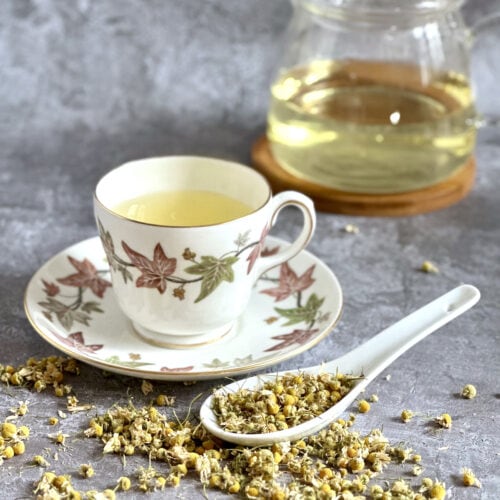
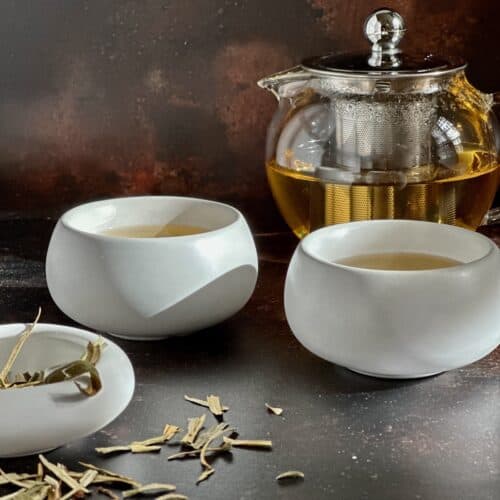
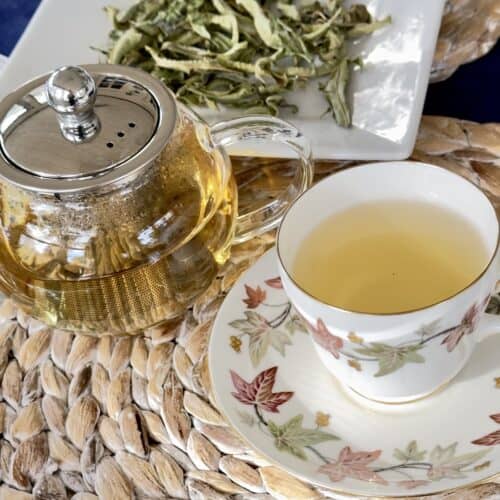
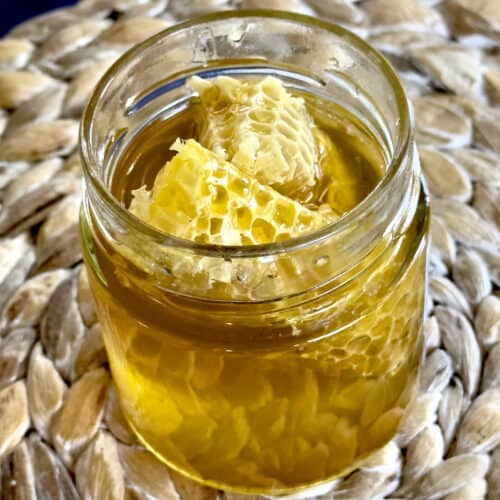
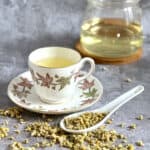
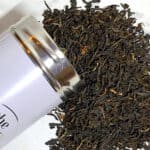
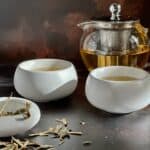
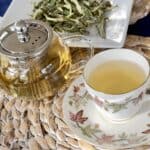


Carol A
Had bad gastric problems that made me give up coffee. I replaced with tea and find I prefer tea now. The bergamot infused with fruit flavors especially peaches are a favorite. Matcha has my attention. Thank you for the education!
Mary Ann Rollano
Thank you. You might enjoy some ginger-infused tea recipes. Ginger is great for digestion, as is peppermint.